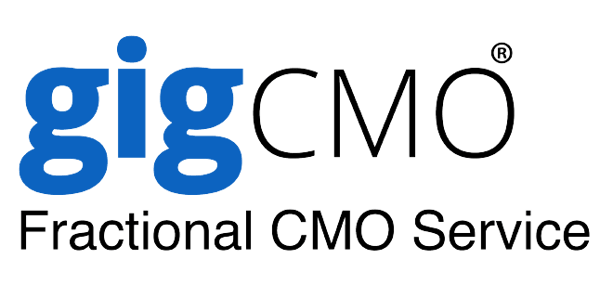
In a connected digital world, every business can have a global presence, which is why SMEs with their sights set on growth are starting to think like multinationals in marketing. It's not just that there's an option to consider operating on a global stage that's driving this mindset. However, it's also becoming necessary in an increasingly competitive world.
In this article, we look at why start-up and scale-up businesses are turning to market strategy plans fit for multinationals and how a Fractional CMO service or marketing consultant can help.
Why are SMEs Adopting Multinational Marketing Strategies?
Digitisation has been the fast track for businesses to connect with customers worldwide. On the plus side, greater connectivity makes it more possible than ever to at least create brand awareness on a global scale.
However, globalisation, heavy competition, empowered customers in new markets, and fast-changing technologies also mean that whether businesses proactively want to expand their business internationally or not, they will find themselves facing competition at home from competitors based outside their domestic markets.
To compete and protect themselves in this fast-paced market, SMEs are transforming their thinking and turning to go-to-market strategies akin to their larger counterparts. Furthermore, thanks to their agility, many SMEs are in a strong position to compete with global competitors - they need to know how to harness their advantage.
Standardisation Versus Localisation
One of the critical elements of a multinational marketing strategy is balancing the needs of a local market with a standardised approach that honours the values of your brand and your business. Each global territory is different, and within those countries, regional nuances often need to be considered as well.
Where massive companies with enormous budgets can approach that with a certain amount of financial clout, SMEs need to be more strategic. The cheapest approach is to roll out the same marketing strategy across the board, but it won't work to implement the same plan in every marketplace because cultural differences and linguistic nuances won't translate.
The key is to be highly targeted in your approach, and the key to that is in the research, planning and competitor analysis.
Internationalisation of SME: The Importance of the CMOs (Chief Marketing Officer) and a Global Marketing Plan
Internationalisation is when companies invest in foreign markets to gain market share. This means they start offering their products or services in new countries. There are multiple ways to do that, depending on your desired outcomes, capabilities, and knowledge of your target markets. The options include:
- An international strategy: exporting to foreign markets and maintaining the same products and services as your home market.
- A multi-domestic strategy: where you tailor products and services to local markets.
- A global strategy: offering standardised products and processes across all markets with minimal adaptations to local market requirements.
- A transnational strategy: where you create a hybrid approach that balances standardisation with local adaptation.
Within these strategies, you can also look at options including exporting, licensing, franchising, partnering and joint ventures, mergers and acquisitions, and greenfield investments.
A Fractional CMO with international experience and an outside perspective can help you decide which approach is best for you based on determining the correct market, understanding your target market(s), managing localisation and translation, and creating an effective go-to-market strategy.
The benefits of global marketing in SMEs
Global marketing isn't just about counterbalancing negatives and threats in the marketplace; it helps SMEs to take advantage of new opportunities as well.
These opportunities range from access to global value chains specialising in specific segments of production, so you don't have to master all the processes required to produce goods and services, through to gaining greater access to competitively priced imports and a wider variety of suppliers to reduce risk in your supply chain.
Often, SMEs are in a greater position than larger firms to take advantage of these things thanks to more flexibility to customise products and services for local markets. They can, therefore, be much more competitive than multinationals within local markets.
Key benefits of global marketing in SMEs include:
Increased Revenue Stream
By creating a global marketing strategy, businesses open opportunities to increase their revenue through greater sales volume. In addition, by operating in different regions, you spread your risk across different markets and currencies rather than having everything subject to the same conditions.
Larger Audience Reach
A global marketing strategy helps to increase revenue by providing access to a much larger audience than if you stayed solely within your domestic market. That, in turn, provides more significant learning opportunities as well.
Build Reputation
Developing your brand reputation is a powerful way to boost your brand value. That increased recognition on and offline will also improve trust, customer retention and brand advocacy, leading to more sales. A good reputation also allows you to charge a premium for products and services as people see you as a desirable brand, further improving profitability.
Market Insights
Market insights are the foundation for remaining competitive and making strategic decisions about when, how and where to grow your business. By having a global marketing strategy, you will be able to access a greater volume of insights and learn about specific market segments and how to engage with them successfully. You may also uncover opportunities that competitors have not.
Strategies for Effective Global Marketing
An effective global marketing strategy must be tailored to your business- no one-size-fits-all model exists. However, there are certain features that a good marketing consultant can recommend, which will provide a framework for a strong marketing strategy plan that addresses global markets.
Key elements include:
Conduct market research
Market research is essential for an effective marketing strategy, whether it's global or domestic. While you may have intuition about a domestic market, it's only with real numbers and information that's then appropriately analysed that you can know what you're doing. Otherwise, it's guesswork, which can waste time and money. Get the numbers so you can understand your market share in real terms and build a more informed business development strategy.
Adapt Marketing Messages
Rolling out the same marketing messages in different countries, or even regions within countries, is unlikely to be successful. It could be pretty damaging depending on linguistic differences and cultural sensitivities. Some things don't translate - even from a purely digital standpoint, and websites need to be adapted to suit local search terms (an estate agent in the UK being a realtor in the USA, for example). So, understanding the different regional characteristics is essential to your marketing and your organisation's success.
Leverage Local Partnerships
Local partnerships can be beneficial in lots of ways. In the initial instance, working with someone who understands the local culture, regulations, logistics and market sensitivities can be a powerful part of your go-to-market strategy. In addition, by aligning yourself with a trusted and desirable brand within the region, you can boost your reputation.
Embrace Digital Marketing
Digital marketing has many benefits; not least, it can lower entry barriers into global markets and help you to internationalise at a fraction of the cost. Increasing the quality of your digital infrastructure is an empowering launchpad for SMEs to get their name out there, embracing an effective digital marketing strategy for each market segment.
Customise product offerings
As with marketing messages, looking at your product or service and seeing where it needs to be customised for different markets is essential. Ensure it works, that you have relevant support structures in place, and that sales capabilities are suitable for different people worldwide. For example, do different countries have different preferred payment methods for your domestic market?
Create Unified Branding
Alongside your localised marketing messages, you must create strong, unified and recognisable branding that can be rolled out across your different markets wherever they are. This is what will define you as a global brand.
Foster Cross-Cultural Communication
Cross-cultural communication is part of ensuring that your company and marketing speak to people in specific cultures and appeal to personal interests across cultures. This is an essential part of a successful global marketing strategy.
Monitor and Measure Performance
Data and analytics are an ongoing part of any successful marketing strategy. Marketing is an evolving practice, so you must continue to monitor and measure performance so you can adapt and improve your approach as your company grows.
Stay Agile and Adapt
A willingness to keep evolving is also vital. Markets continue to change, disruptors will continue to break into the marketplace, and you will continue growing as an organisation. The ability to respond to those changes in an informed but timely manner is critical to being a thriving international organisation.
Secure Global Market Success with gigCMO
At gigCMO, we help companies enter new markets around the world with inbuilt experience across the globe. Our playbook approach combines the best business school strategies with our team and thought leaders' ongoing learnings and on-the-job experience. We use this as the foundation to develop individual go-to-market strategies for businesses looking to scale up and expand internationally.
Read more about how we provide marketing investment to grow your business.



